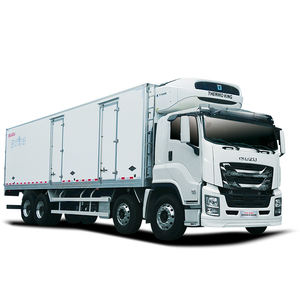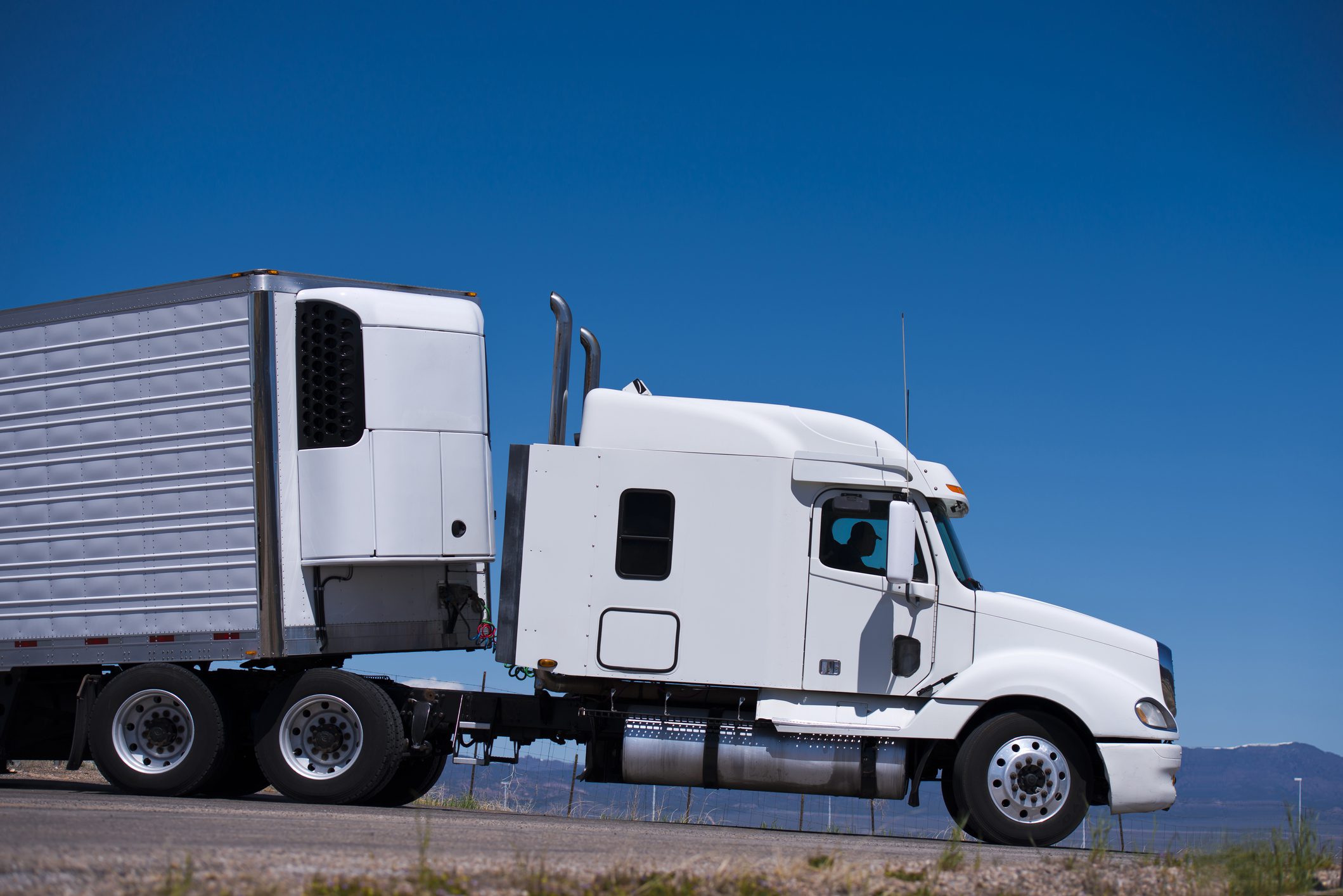Leading Innovations in Transportation Refrigeration: Enhancing Efficiency and Safety
The landscape of transportation refrigeration is undertaking considerable transformation, driven by technologies intended at enhancing both performance and safety. As these advancements proceed to evolve, it is crucial to discover their effects on operational methods and regulative conformity, prompting a more detailed examination of exactly how they improve the future of transportation refrigeration.
Smart Temperature Checking Systems
In the realm of transport refrigeration, wise temperature level surveillance systems have emerged as an essential innovation for guaranteeing the stability of temperature-sensitive goods. These sophisticated systems take advantage of Web of Points (IoT) modern technology to provide real-time data on temperature level changes, allowing drivers to maintain optimum problems throughout the supply chain. By continually tracking the temperature of chilled containers and lorries, firms can promptly recognize deviations that may jeopardize item top quality.

In addition, smart surveillance systems frequently incorporate automated informs and notifications, enabling stakeholders to react promptly to any possible issues. This positive strategy not only lessens the danger of spoilage however additionally enhances compliance with regulative standards controling food safety and security and pharmaceutical transport.
The combination of information analytics within these systems additionally promotes predictive upkeep, aiding drivers to foresee prospective tools failures before they happen. This ability lowers downtime and optimizes operational effectiveness, inevitably bring about cost savings.
Eco-Friendly Refrigerants
Smart temperature level monitoring systems play a crucial duty in maintaining product quality, however the performance of transportation refrigeration also hinges on the choice of cooling agents used. In contrast, emerging options like hydrocarbon-based cooling agents and hydrofluoroolefins (HFOs) existing reduced GWP choices, using both efficiency and sustainability.
These environment-friendly cooling agents not only reduce environmental effect however likewise align with international laws focused on terminating damaging compounds. Their fostering can bring about enhanced energy efficiency, ultimately decreasing operating costs for transport refrigeration systems. Furthermore, the use of natural refrigerants, such as ammonia and co2, has gotten traction due to their outstanding thermodynamic buildings and reduced environmental footprint.
Buying environment-friendly refrigerants is not merely a regulatory conformity action; it represents a calculated decision that boosts brand name credibility and fosters client loyalty. thermo king truck refrigeration units. By prioritizing lasting practices, firms can add to a greener future while making sure the integrity of transported items
Advanced Insulation Materials
Making use of sophisticated insulation products is important for enhancing transportation refrigeration systems, as they considerably improve power effectiveness and maintain constant temperature level control. Conventional insulation approaches often drop short in stopping thermal transfer, leading to boosted energy usage and fluctuating temperature levels within refrigerated areas.
Arising materials such as vacuum insulated panels (VIPs) and aerogels use superior thermal resistance, enabling for thinner accounts without compromising performance. VIPs, as an example, use a vacuum cleaner layer to reduce convective and conductive warmth transfer, making them perfect for space-constrained applications. Aerogels, understood for their lightweight and porous framework, provide phenomenal insulation while substantially lowering overall system weight.
Furthermore, integrating stage change products (PCMs) into insulation systems can additionally maintain temperature levels during transportation. These products soak up and release thermal energy, successfully buffering versus exterior temperature variations.
The integration of these advanced insulation materials not just reduces the operational costs associated with energy consumption but also extends the life span of temperature-sensitive goods. As the transport refrigeration industry continues to develop, the adoption of innovative insulation innovations will certainly be essential in improving both performance and safety in refrigerated transport.
Automated Course Optimization
The performance of transportation refrigeration systems is significantly enhanced via automated course optimization, which leverages real-time information and advanced formulas to figure out one of the most reliable paths for shipment. By assessing different variables such as website traffic patterns, climate problems, and delivery home windows, these systems can substantially decrease travel time and fuel consumption.
Automated course optimization lessens human error and subjective decision-making, which can cause ineffectiveness. This innovation allows fleet supervisors to allocate resources better, making sure that cooled goods maintain their called for temperature level throughout the journey. By enhancing paths, business can additionally boost pop over to these guys consumer fulfillment through timely deliveries.
Additionally, automated systems can adapt to unpredicted circumstances, such as road closures or sudden traffic spikes, allowing for vibrant rerouting. This flexibility not only protects the integrity of temperature-sensitive products but also adds to general functional performance.
Carrying out automated route optimization can lead to considerable cost savings while decreasing the carbon impact related to transportation. As services progressively prioritize sustainability, this advancement stands out as an important component in modern-day transport refrigeration, aligning functional goals with ecological responsibility. Eventually, automated path optimization stands for a considerable advancement in the quest for performance and safety in transport refrigeration.

Real-Time Data Analytics
Automated route optimization dramatically take advantage of the assimilation of real-time information analytics, which provides essential understandings into the performance of transport refrigeration systems. By making use of real-time data, transport drivers can keep an eye on temperature level changes and tools performance, making sure that disposable goods are maintained within called for specifications throughout transit. This aggressive method not just improves the quality of the carried items but likewise alleviates the risk of perishing and loss.

Along with boosting performance, real-time analytics enhances safety by ensuring conformity with regulative criteria for temperature control. This not just safeguards public health yet likewise strengthens a business's track record - thermo king truck refrigeration. As the transport refrigeration sector develops, the integration of real-time information analytics becomes a keystone for driving innovation, sustainability, and operational excellence
Final Thought
In my company verdict, the advancements in transport refrigeration substantially enhance both effectiveness and security within the sector. Jointly, these technologies stand for a crucial important site advancement in transport refrigeration, guaranteeing compliance with regulative requirements and promoting a greener future.
The landscape of transport refrigeration is undertaking substantial transformation, driven by innovations aimed at enhancing both efficiency and safety.Smart temperature level surveillance systems play a vital duty in keeping item top quality, however the efficiency of transportation refrigeration additionally pivots on the option of refrigerants utilized. Their adoption can lead to boosted energy efficiency, inevitably lowering operating prices for transport refrigeration systems. Ultimately, automated route optimization represents a considerable innovation in the mission for effectiveness and safety in transport refrigeration.
In verdict, the innovations in transportation refrigeration substantially enhance both performance and safety and security within the market.